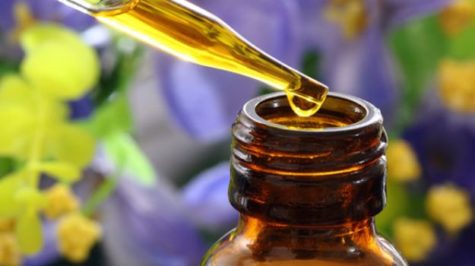Essential Oil Safety Precautions
What follows is a list of the indispensable precautions for the safe use of essential oils. If you experience a problem in spite of everything, the first two guidelines are intended to counteract emergencies arising out of unintended contact with sensitive skin areas and mucous membranes.
- Never try to dilute essential oils with water.
As their name implies, essential oils do not mix with water. If they did, they wouldn’t float to the surface in a steam distiller, where they can be collected easily by separation flow. So it is important to remember if essential oils should ever irritate sensitive skin, they cannot be diluted with water. Water will cause the oils to burn even more. A comparison can be made to an oil fire: Water will tend to spread such a fire rather than extinguish it. Essential oils must be diluted with some type of vegetable oil.
- Never let essential oils come in contact with mucous membranes or sensitive skin.
By the very nature of extraction, essential oils are highly concentrated substances. Essential oils, because of their highly concentrated state, must never come into contact with mucous membranes or sensitive areas of the skin. If essential oil is accidentally splashed into the eye, the irritation is very intense The oil must be diluted immediately. Almond oil is mildest for the eyes, but any pure vegetable oil will help. Put it on a cotton ball and delicately dab at the eye.
When essential oils come in contact with other areas of sensitive skin (armpits, genital areas, face, etc), vegetable oil can be applied the same way to dilute the essential oil, thus reducing the irritation
If essential oil is swallowed, one or two spoonfuls of virgin vegetable oil must be taken immediately to soothe the irritated mucous membranes and dilute the essential oil reaching the stomach. This will also slow down the speed of passage through the gastric mucous membranes and penetration into the blood.
- Never add undiluted essential oils directly to bathwater.
This precaution must be taken, again, because the oils will not mix with the water but will float on top of it. When essential oils are used this way in a bath, the floating oil will stick to the skin in its concentrated form, particularly to the sensitive genital areas. This can cause a very unpleasant, even serious irritation, because hot bath water actually increases the irritation.
Instead, dissolve the oils first in powdered milk, egg yolk, or even coarse sea salt. Never try to use more than 10 to 20 drops of essential for one bath. For further safety, add the essential oil / powder mixture slowly over time while you are in the bath, rather than all at once.
- Generally, people with allergies must be very cautious with essential oils.
My first advice to those with allergies is to choose the very highest quality oils you can find. Residues from chemical agriculture are in fact the most likely source of skin reactions. As much as possible certified 100% organic essential oils should be used. Do The Patch Test before using any new essential oil.
- Some essential oils are light-sensitizing, so exposure to sun must be avoided after application.
This is particularly true of citrus essences, extracted by cold-pressing. The most common case is that of the essence of Bergamot, but caution must be used with most citrus oils. Beyond the citrus varieties, I should also mention the essential oils of Angelica and African Marigold. Ignoring this rule when using these essential oils could result in brown skin patches which could become permanent. There may also be an increased risk of skin cancer.
- Some essential oils have strong caustic characteristics, and should be used very cautiously, generally in a diluted form.
This applies to the essential oils rich in phenols (thymol, carvacrol, eugenol). Examples include the phenol Thymes, Oregano, Savory, Clove, and Cinnamon Leaf. The essential oil of Cinnamon Bark is also very irritating. Also the oil of Lemongrass, concentrated in citrals, can be highly irritating.
- Essential oils rich in menthol should not be used close to the throat or neck on children under 30 months of age.
This is the rule taught in medical and pharmacological courses concerning menthol. In natural aromatherapy, we do not use menthol in its pure state, but use instead the essential oil of Peppermint, which is very different. Nevertheless, as a supplementary precaution, I prefer to include this rule as it is learned in standard medicine.
- Care must be taken to tightly close essential oil bottles after use and to always keep them out of reach of children.
This rule is self-evident, but must be restated because it is broken too often. It applies to all chemical products and medications.
- Taking essential oils orally requires oils of impeccable quality and the direction of a qualified health professional.
This basic precaution does not preclude taking them in diluted form in an appropriate medium. Even so, problems that arise from taking essential oils internally are generally due to the fact that they are taken in a concentrated state which leads to rapid absorption in the stomach and a very quick passage into the bloodstream. Taking one or two drops of a mild essential oil of high quality, diluted in honey, does not entail any particular risk. It just requires good common sense.
- Always keep some vegetable oil readily available when using essential oils.
Any essential oil kit must contain a vial of good quality carrier oil. This carrier oil is important not only for diluting the essentials, but also for safety in case an undiluted oil causes sensitivity, or is accidentally applied to a sensitive area.
Source: Natural Home Health Care Using Essential Oils





Leave a Reply